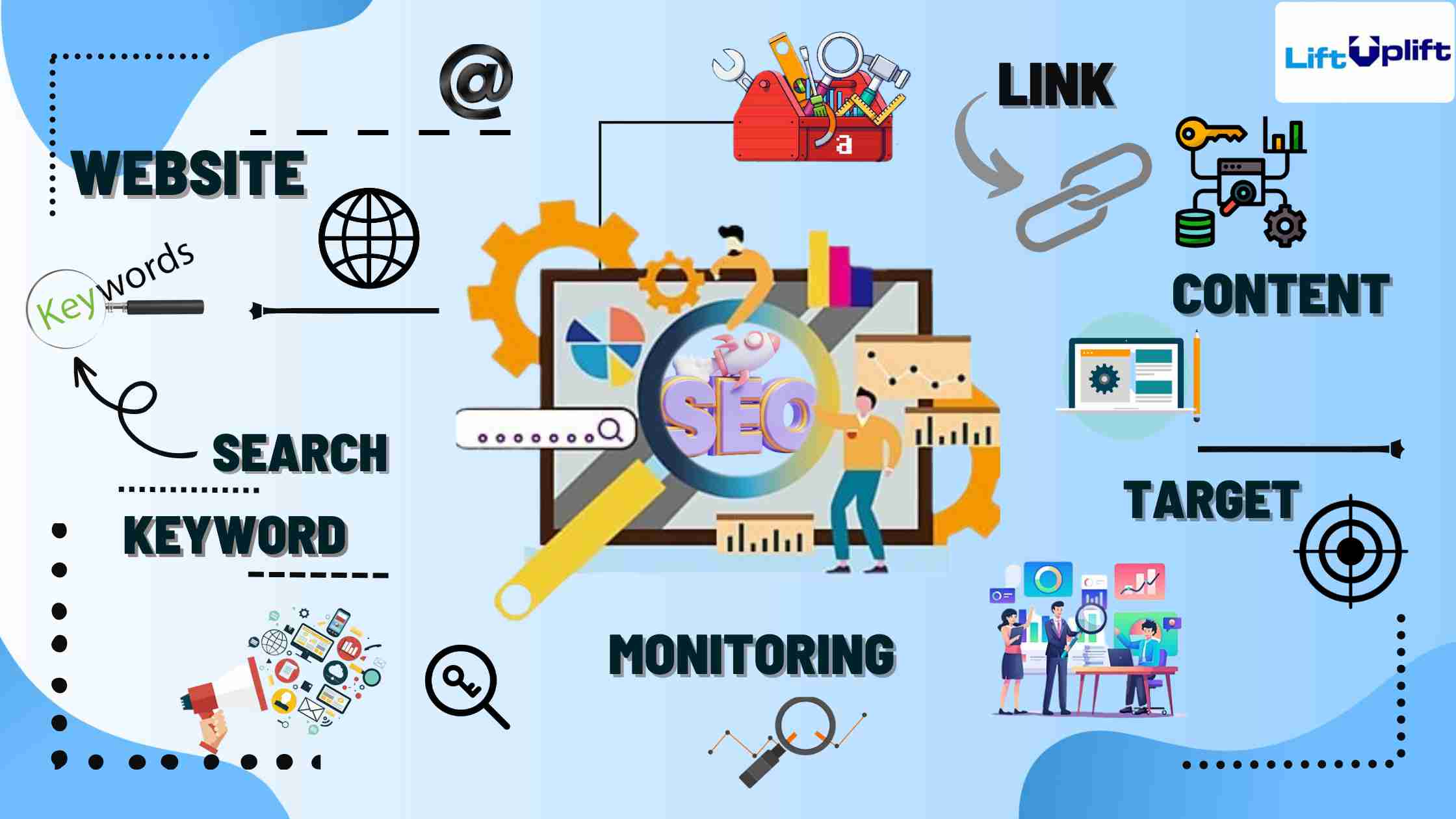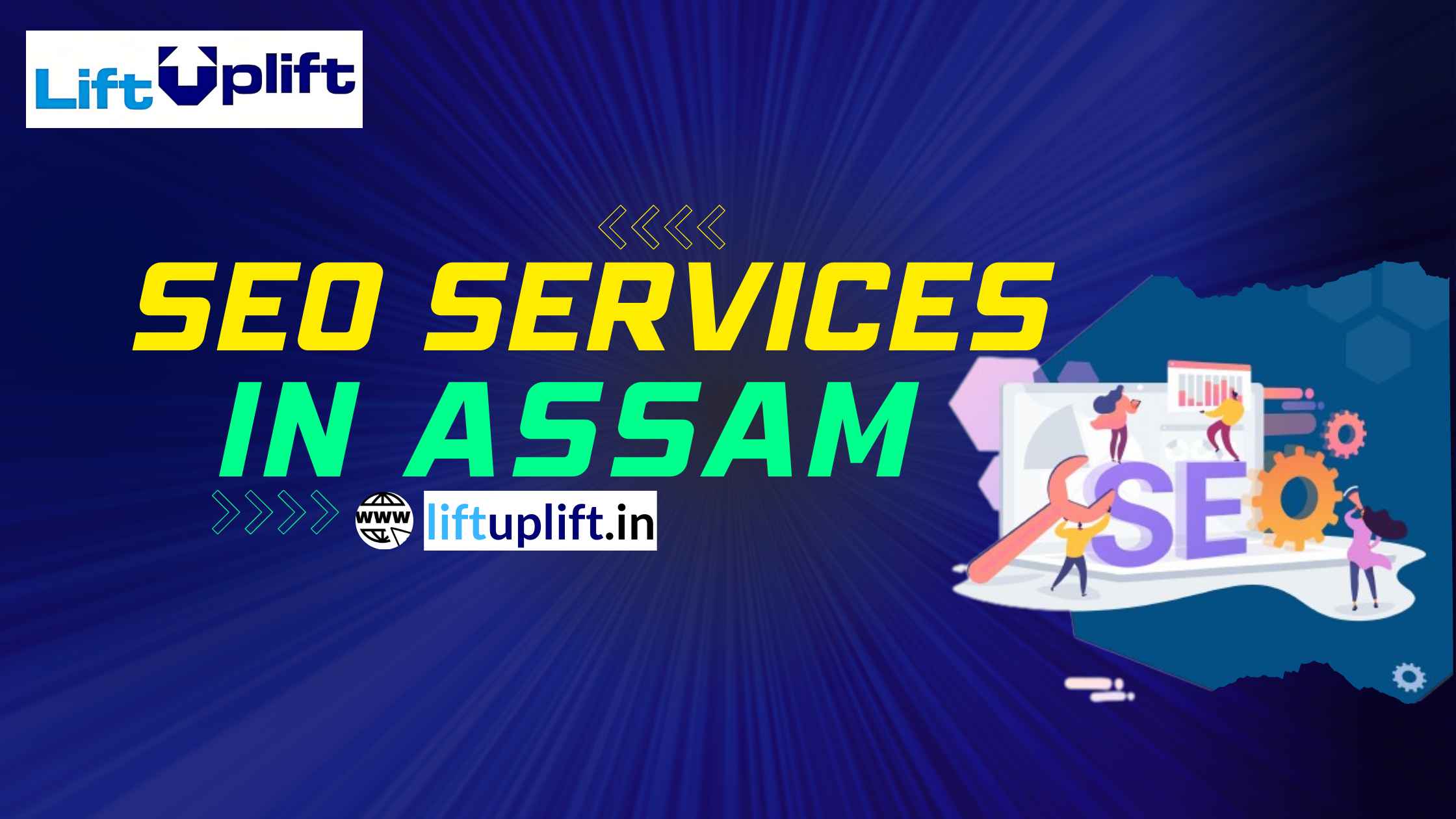“What is search engine optimization” and “what is SEO” are common questions in today’s digital world as businesses aim to increase their online visibility. In simple terms, search engine optimization, or SEO for short, is the process of optimizing a website and its content to improve the organic ranking of the website on search engines like Google, Bing, and Yahoo.
The goal of SEO is to increase the quantity and quality of organic traffic to a website, which can lead to higher visibility, brand awareness, and ultimately, conversions.
SEO involves a variety of tactics and techniques, such as keyword research, content optimization, link building, and technical SEO, all aimed at making a website more appealing to search engines.
The success of SEO efforts is measured by the website’s ability to rank higher in search results, attract more organic traffic, and achieve a higher return on investment.
SEO is a continually evolving field as search engines continually update their algorithms to provide the best possible user experience. As such, businesses must stay up-to-date with the latest SEO best practices and trends to remain competitive in the search landscape.
Whether you’re a small business owner or a marketing professional, understanding what is search engine optimization and what is SEO can help you maximize your online potential and reach your target audience.
Types of SEO
When it comes to search engine optimization, there are two main types: on-page SEO and off-page SEO.
1. On-Page SEO:
On-page SEO refers to the optimization of elements within the website itself, such as the content, meta tags, and images.
This type of SEO focuses on making the website user-friendly and relevant to both the search engines and the users.
It involves optimizing the website’s structure, content, and images to ensure they are easily crawlable by search engines, as well as making sure that the website’s content is relevant, unique, and of high quality.
2. Off-page SEO:
Off-page SEO, on the other hand, refers to the optimization efforts that take place outside of the website.
This includes tactics such as link building, social media optimization, and influencer marketing. The goal of off-page SEO is to increase the website’s visibility and credibility in the eyes of search engines and users by obtaining high-quality links from authoritative websites.
In addition to on-page and off-page SEO, there is also technical SEO, which focuses on optimizing the technical aspects of a website.
This includes optimizing the website’s structure, URL structure, and website speed, as well as ensuring that the website is mobile-friendly and secure.
Technical SEO plays a crucial role in the overall success of SEO efforts as it affects the website’s crawlability, indexing, and user experience.
What is On-Page SEO
On-page SEO, as the name suggests, refers to the optimization efforts made on the actual website. It involves optimizing the elements within the website to make it more appealing to both search engines and users.
The ultimate goal of on-page SEO is to improve the website’s organic ranking and attract more organic traffic.Some of the key elements of on-page SEO include:
1. Content optimization:
Creating high-quality, relevant, and unique content that is optimized for target keywords.
2. Meta tags:
Adding relevant meta tags, such as title tags and meta descriptions, to provide more information to search engines about the content of the page.
3. URL structure:
Creating a clear and concise URL structure that is easy for both search engines and users to understand.
4. Header tags:
Using header tags, such as H1, H2, and H3, to structure the content and make it easier for both search engines and users to read.
5. Image optimization:
Optimizing images by compressing them, adding relevant alt tags, and using descriptive file names.
6. Internal linking:
Linking to other relevant pages within the website to help search engines understand the website’s structure and improve user experience.
In addition to these elements, on-page SEO also involves making sure that the website is easily crawlable by search engines and that the website’s content is relevant, unique, and of high quality.
On-page SEO is a critical component of a successful SEO strategy as it helps to ensure that the website is both user-friendly and search engine-friendly.
What is Off-Page SEO
Off-page SEO refers to the optimization efforts made outside of the website, with the goal of improving the website’s credibility, visibility, and search engine ranking. Unlike on-page SEO, which focuses on optimizing elements within the website, off-page SEO focuses on optimizing elements outside of the website.
Some of the key elements of off-page SEO include:
1. Link building:
Obtaining high-quality links from authoritative websites to improve the website’s credibility and visibility in the eyes of both search engines and users.
2. Social media optimization:
Using social media platforms, such as Facebook, Twitter, and LinkedIn, to promote the website and engage with users.
3. Influencer marketing:
Partnering with influencers in the industry to promote the website and reach a wider audience.
4. Brand mentions:
Building brand awareness and visibility by having the website mentioned on other websites and forums.
Off-page SEO is an important component of a successful SEO strategy as it helps to improve the website’s credibility, visibility, and search engine ranking. By implementing a well-rounded off-page SEO strategy, businesses can increase their online visibility, attract more organic traffic, and achieve a higher return on investment.
It’s important to note that off-page SEO should be done ethically and within the guidelines set by search engines, as black hat techniques, such as link buying and link spamming, can result in penalties and decreased rankings.
By focusing on high-quality link building and social media optimization, businesses can improve their off-page SEO and achieve long-term success.
What is Technical SEO
Technical SEO refers to the optimization of the technical aspects of a website, with the goal of improving the website’s visibility, ranking, and user experience.
Unlike on-page and off-page SEO, which focus on the content and link-building aspects of a website, technical SEO focuses on the behind-the-scenes elements of a website.
Some of the key elements of technical SEO include:
1. Website structure:
Ensuring that the website has a clear and well-structured hierarchy, making it easier for search engines to crawl and index the content.
2. URL structure:
Creating a clear and concise URL structure that is easy for both search engines and users to understand.
3. Mobile optimization:
Ensuring that the website is optimized for mobile devices, with a responsive design and fast load times.
4. Website speed:
Optimizing the website’s speed, making it faster for users to access and navigate the website.
5. Sitemap and robot.txt files:
Creating and submitting a sitemap and robot.txt file to search engines to help them understand the website’s structure and content.
Technical SEO is a critical component of a successful SEO strategy, as it helps to improve the website’s visibility, ranking, and user experience.
By focusing on the technical aspects of the website, businesses can ensure that their website is both search engine-friendly and user-friendly, leading to increased organic traffic, higher conversions, and a better return on investment.
Vital Importance of SEO
Search engine optimization (SEO) is crucial for businesses of all sizes, as it helps to improve the visibility, credibility, and ranking of their website in search engines, resulting in increased organic traffic and a higher return on investment.
The importance of SEO can be seen in the following ways:
# Increased visibility:
SEO helps to improve the visibility of a website in search engines, making it easier for users to find the website and its content.
# Improved credibility:
By implementing a well-rounded SEO strategy, businesses can improve their credibility and authority in the eyes of both search engines and users, leading to increased trust and conversions.
# Higher ranking:
SEO helps to improve the ranking of a website in search engines, making it more likely that users will find the website and its content when searching for relevant keywords.
# Increased organic traffic:
By improving the visibility and ranking of a website, SEO can help to increase the website’s organic traffic, resulting in more potential customers and a higher return on investment.
# Competitive advantage:
SEO provides businesses with a competitive advantage, as it helps them to stand out in the crowded online marketplace and reach a wider audience.
Discover How SEO Works and Boost Your Online Visibility
Search engine optimization (SEO) works by improving the visibility and ranking of a website in search engines. Search engines like Google use algorithms to crawl and index websites, taking into account various factors to determine the relevance and authority of a website.
SEO works by optimizing various elements of a website to align with these algorithms, making it more likely that the website will rank higher in search engine results pages (SERPs). Some of the key elements of SEO include:
1. On-page optimization:
This refers to the optimization of the content and structure of a website, including the use of keywords, meta tags, and header tags, among others.
2. Off-page optimization:
This refers to the optimization of factors outside of the website, such as link building, social media, and other backlinks.
3. Technical optimization:
This refers to the optimization of the technical aspects of a website, including website speed, mobile optimization, and website structure.
By optimizing these elements, SEO helps to improve the relevance, authority, and credibility of a website, making it more likely that search engines will rank it higher in SERPs.
This leads to increased organic traffic, more potential customers, and a higher return on investment.
SEO is a continuous process, as search engines are constantly updating their algorithms, and businesses must continually optimize their website to stay ahead of the competition.
Discover the Top Benefits of SEO
The benefits of search engine optimization (SEO) are numerous and can greatly impact a business’s online presence and success. Some of the key benefits include:
# Increased organic traffic:
By ranking higher in search engine results pages (SERPs), a website becomes more visible to potential customers, leading to an increase in organic traffic.
# Improved user experience:
A well-optimized website is easier to navigate and use, improving the overall user experience.
# Higher credibility and trust:
A high ranking in SERPs can improve the credibility and trust of a website in the eyes of potential customers.
# Better return on investment:
By attracting more organic traffic and increasing the credibility and trust of a website, SEO can lead to a higher return on investment.
# Competitive advantage:
With the increasing competition in the online marketplace, SEO provides businesses with a competitive advantage by helping them stand out and reach a wider audience.
# Long-term results:
Unlike paid advertising, the results of SEO are long-lasting and continue to provide benefits even after the initial investment.
How to Master the Art of SEO
Learning search engine optimization (SEO) can be a valuable investment for individuals and businesses looking to improve their online presence and visibility. Here are some ways to get started with learning SEO:
# Read articles and blogs:
Stay up-to-date with the latest SEO news and techniques by reading articles and blogs written by industry experts.
# Watch tutorials and webinars:
There are many tutorials and webinars available online that cover various aspects of SEO, from beginner to advanced levels.
# Join SEO forums and communities:
Join SEO forums and communities to connect with others in the industry, ask questions, and learn from experienced professionals.
# Take online courses:
There are many online courses available that provide in-depth coverage of SEO, from the basics to advanced techniques.
# Practice:
The best way to learn SEO is by practicing it on your own website or on a test website. This will give you hands-on experience and help you understand how SEO works in a real-world setting.
Summary
Search Engine Optimization (SEO) is the process of optimizing a website to improve its organic search engine ranking.
The goal is to increase the quantity and quality of organic traffic to the website. SEO involves tactics such as keyword research, content optimization, link building, and technical SEO to make the website more appealing to search engines.
There are two main types of SEO: on-page SEO, which focuses on optimizing elements within the website, and off-page SEO, which focuses on elements outside of the website such as link building, social media optimization, and influencer marketing.
Technical SEO focuses on optimizing the technical aspects of a website, such as a website structure, speed, and mobile-friendliness.
On-page SEO involves optimizing elements like content, meta tags, and images, while off-page SEO aims to improve the website’s credibility, visibility, and ranking by obtaining high-quality links and promoting the website through social media and influencer marketing.
Frequently Asked Questions
What is Black hat SEO?
Black hat SEO refers to unethical and illegal practices used to manipulate search engine rankings. These practices go against search engine guidelines and can result in penalties or even banishment from the search engine index.
Examples of black hat SEO tactics include keyword stuffing, link buying, cloaking, and content duplication. It is important to avoid these practices in favor of ethical, white-hat SEO techniques to ensure long-term search engine success.
What is White Hat SEO?
White hat SEO refers to ethical and legitimate optimization techniques that help improve the ranking of a website in search engine results pages while adhering to the guidelines set by search engines like Google.
These techniques include creating high-quality content, improving website structure and user experience, and using keyword research to target relevant phrases. The goal of white hat SEO is to improve the visibility of a website in an organic and sustainable way.
Can I learn SEO online?
Yes, you can learn SEO online. There are many resources available, such as blogs, forums, online courses, and tutorials that can provide valuable information on how to improve your website’s search engine optimization.
Some popular online sources for learning SEO include Moz, Neil Patel, Search Engine Journal, and Hubspot.
Additionally, there are certification programs, such as the Google AdWords Certification and the Hubspot Inbound Marketing Certification, that can demonstrate your proficiency in SEO.
What are the top SEO tools?
There is no definitive list of the “top” SEO tools, as the best tool for any given task will depend on a variety of factors such as the type of website, the target audience, and the specific goals of the website owner. However, some popular SEO tools include:
- Google Analytics
- Google Search Console
- Ahrefs
- SEMrush
- Moz Pro
- Majestic
- Keyword Tool
- Ubersuggest
- Screaming Frog SEO Spider
- MozBar
It’s worth noting that these are just a few examples and that there are many other tools available, some of which may be more suited to your specific needs.
How to do SEO for a website?
SEO for a website can be done by following these steps:
- Conduct keyword research to identify relevant keywords for your website.
- Optimize website content and meta tags (title, description, header tags) using the keywords.
- Improve website architecture and user experience, making sure it is easy to navigate and loads quickly.
- Acquire high-quality backlinks from reputable websites.
- Track and analyze your website’s SEO performance using tools such as Google Analytics and Google Search Console.
- Continuously make improvements based on data and best practices to improve website ranking and visibility.
- Keep up-to-date with the latest algorithms and ranking factors by following SEO industry news and best practices.
How SEO works for business?
SEO (Search Engine Optimization) works for businesses by helping them improve their website’s visibility and ranking on search engine result pages (SERPs) for specific keywords related to their products or services.
By optimizing their website’s content, structure, and technical elements, businesses can attract more organic traffic from search engines, which can lead to increased brand awareness, website engagement, and conversions.
Effective SEO strategies include keyword research, on-page optimization, link building, and website performance monitoring. By consistently implementing these tactics and adapting to changes in search algorithms, businesses can establish a strong online presence and reach their target audience effectively.
How long does it take to see an SEO result?
The time it takes to see the results of SEO efforts can vary depending on several factors such as the competitiveness of your industry, the size of your website, the quality of your SEO strategies, and the overall authority of your domain.
On average, it can take anywhere from 3 to 6 months to see significant improvements in organic traffic, but it can take up to a year or more to see the full impact of your SEO efforts.
It’s important to note that SEO is a long-term strategy and sustained effort is required to maintain and improve your website’s search engine visibility.



